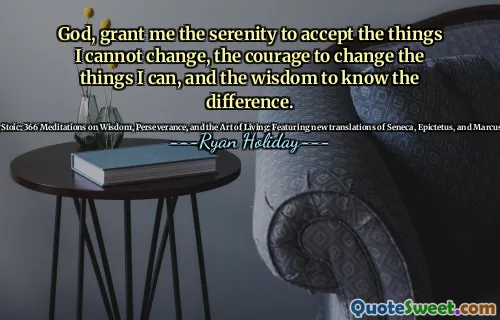Remember, then, if you deem what is by nature slavish to be free, and what is not your own to be yours, you will be shackled and miserable, blaming both gods and other people. But if you deem as your own only what is yours, and what belongs to others as truly not yours, then no one will ever be able to coerce or to stop you, you will find no one to blame or accuse, you will do nothing against your will, you will have no enemy, no one will harm you, because no harm can affect you. -EPICTETUS, ENCHIRIDION, 1.3
Epictetus emphasizes the importance of understanding ownership in a philosophical sense. He argues that if one mistakes what is inherently servile or external to them as being their own, they will inevitably suffer, feeling trapped and resentful towards the world. This intrinsic misunderstanding leads to unhappiness and blame directed not only at others but also at the divine. Thus, the core concept is to recognize and accept what truly belongs to oneself and to let go of the attachments to what does not.
When individuals adopt a mindset that only considers what is genuinely their own as belonging to them, they free themselves from external pressures and influences. This perspective fosters a sense of autonomy and peace, as one realizes that they cannot be coerced or wronged in ways that matter. By relinquishing the need to possess or control things outside themselves, they become invulnerable to harm, finding themselves at peace and free from animosity. Ultimately, this philosophical approach advocates for personal responsibility and mental clarity, allowing for a fulfilled and tranquil life.







